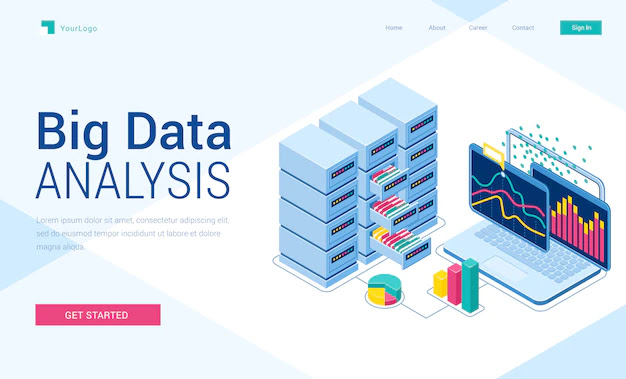
Transforming Businesses in the Digital Age
Introduction:
In today's fast-paced digital world, E-commerce has revolutionized the way businesses operate. With its immense potential, E-commerce has become an indispensable tool for companies of all sizes, enabling them to reach a global customer base and streamline their operations. In this article, we will delve into the meaning and significance of E-commerce, explore the various aspects of E-commerce businesses, discuss the importance of E-commerce enablement, and shed light on the Intuit E-commerce service. So, let's embark on this journey to understand the power and possibilities that E-commerce offers.
1.Understanding E-commerce:
E-commerce, short for electronic commerce, refers to the buying and selling of goods and services over the internet. It involves online transactions, electronic funds transfer, online shopping carts, and secure payment gateways. E-commerce has transformed the traditional brick-and-mortar business model, offering numerous benefits to businesses, such as increased reach, cost-effectiveness, and improved customer experience.
A World of Opportunities
An E-commerce business operates entirely online, allowing customers to browse and purchase products or services at their convenience. It eliminates geographical limitations, enabling businesses to tap into a global customer base. We will explore the key components of an E-commerce business and highlight the benefits it brings, such as reduced overhead costs, 24/7 accessibility, and personalized marketing.
An E-commerce business operates entirely online, allowing customers to browse and purchase products or services at their convenience. It eliminates geographical limitations, enabling businesses to tap into a global customer base. We will explore the key components of an E-commerce business and highlight the benefits it brings, such as reduced overhead costs, 24/7 accessibility, and personalized marketing.
Unleashing the Full Potential:
E-commerce enablement refers to the process of equipping a business with the necessary tools and technologies to establish a robust online presence. This section will delve into the significance of E-commerce enablement, discuss the various technologies and tools available, and emphasize how it enhances business operations, including inventory management, order fulfillment, and customer relationship management.
E-commerce enablement refers to the process of equipping a business with the necessary tools and technologies to establish a robust online presence. This section will delve into the significance of E-commerce enablement, discuss the various technologies and tools available, and emphasize how it enhances business operations, including inventory management, order fulfillment, and customer relationship management.
4.Crafting an Effective E-commerce Store:
The E-commerce store serves as the digital storefront for an online business. It should be visually appealing, user-friendly, and optimized for conversions. This section will guide you through the process of creating and managing a successful E-commerce store, covering aspects such as selecting the right platform, designing an intuitive interface, and implementing effective product categorization and search functionalities.
5. Exploring Lucrative E-commerce Job Opportunities:
The rapid growth of E-commerce has created a demand for skilled professionals in various job roles. From E-commerce managers to digital marketing specialists and customer service representatives, this section will provide an overview of the diverse E-commerce job opportunities available. We will also discuss the skills and qualifications required for these roles, emphasizing the importance of adaptability and digital literacy.
6. Building E-commerce Goodwill:
E-commerce goodwill refers to the positive reputation and trust a business establishes among its online customers. Building goodwill is essential for long-term success and customer loyalty. In this section, we will explore the factors influencing E-commerce goodwill, such as product quality, customer service, and secure transactions. Additionally, we will provide strategies to build and maintain goodwill, including social proof, customer reviews, and transparent policies.
Empowering Businesses
Intuit E-commerce Service is a comprehensive platform that empowers businesses to establish and grow their online presence seamlessly. This section will introduce the Intuit E-commerce Service, highlight its features and benefits, and discuss how it can help businesses succeed in the competitive E-commerce landscape. From customizable templates to secure payment gateways, we will explore the tools and functionalities offered by Intuit E-commerce Service.
Intuit E-commerce Service is a comprehensive platform that empowers businesses to establish and grow their online presence seamlessly. This section will introduce the Intuit E-commerce Service, highlight its features and benefits, and discuss how it can help businesses succeed in the competitive E-commerce landscape. From customizable templates to secure payment gateways, we will explore the tools and functionalities offered by Intuit E-commerce Service.
Conclusion:
E-commerce has emerged as a game-changer for businesses worldwide, enabling them to transcend physical boundaries and thrive in the digital era. In this article, we explored the meaning and significance of E-commerce, delved into the various aspects of E-commerce businesses, discussed the importance of E-commerce enablement, and shed light on the Intuit E-commerce service.
E-commerce has emerged as a game-changer for businesses worldwide, enabling them to transcend physical boundaries and thrive in the digital era. In this article, we explored the meaning and significance of E-commerce, delved into the various aspects of E-commerce businesses, discussed the importance of E-commerce enablement, and shed light on the Intuit E-commerce service.
As businesses continue to adapt and embrace E-commerce, it opens up a world of opportunities for growth and success. The benefits of E-commerce are undeniable, from increased reach and cost-effectiveness to improved customer experience and convenience. By leveraging E-commerce, businesses can tap into a global customer base, operate round the clock, and tailor their marketing efforts to individual customer preferences.
However, simply having an online presence is not enough. E-commerce enablement plays a crucial role in unleashing the full potential of online businesses. This involves equipping businesses with the right tools and technologies to effectively manage their online operations. From inventory management systems and order fulfillment solutions to customer relationship management platforms, E-commerce enablement streamlines processes, enhances efficiency, and ensures a seamless customer experience.
One of the key aspects of E-commerce enablement is creating and managing an effective E-commerce store. Your E-commerce store serves as the virtual storefront, where customers browse and make purchases. It is essential to design an intuitive and visually appealing store interface that is optimized for conversions. The selection of the right E-commerce platform, easy navigation, clear product categorization, and robust search functionalities are crucial for a successful online store.
With the rapid growth of E-commerce, there is also a surge in job opportunities in this field. Various roles, such as E-commerce managers, digital marketing specialists, content creators, and customer service representatives, are in high demand. These roles require a blend of technical expertise, creativity, and an understanding of consumer behavior. Digital literacy, data analysis skills, and adaptability to changing trends are also essential for professionals seeking E-commerce job opportunities.
Building E-commerce goodwill is another critical aspect that businesses need to focus on. Goodwill refers to the positive reputation and trust a business establishes among its online customers. In the highly competitive E-commerce landscape, goodwill is the foundation for long-term success and customer loyalty. Factors such as product quality, prompt customer service, secure transactions, and transparent policies contribute to building goodwill. Encouraging customer reviews, providing social proof, and maintaining open lines of communication with customers are effective strategies for nurturing goodwill.
In the realm of E-commerce services, Intuit E-commerce Service stands out as a comprehensive platform that empowers businesses to establish and grow their online presence seamlessly. With customizable templates, secure payment gateways, inventory management features, and integrated marketing tools, Intuit E-commerce Service simplifies the process of setting up and managing an online store. It provides businesses with the necessary tools to showcase their products, process payments securely, and effectively market their offerings to a global audience.
In conclusion, E-commerce has transformed the business landscape, offering immense opportunities for growth and success. Understanding the meaning and significance of E-commerce is crucial for businesses to thrive in the digital age. E-commerce enablement, through the utilization of tools and technologies, ensures that businesses can effectively manage their online operations and provide exceptional customer experiences. With the right strategies in place, businesses can build E-commerce goodwill and establish a positive reputation among online customers. The Intuit E-commerce Service is a valuable platform that empowers businesses to harness the power of E-commerce and achieve their goals. Embracing E-commerce and leveraging its potential can propel businesses to new heights, enabling them to reach a global customer base and thrive in the digital era.


















.webp)



.webp)
























.jpg)
